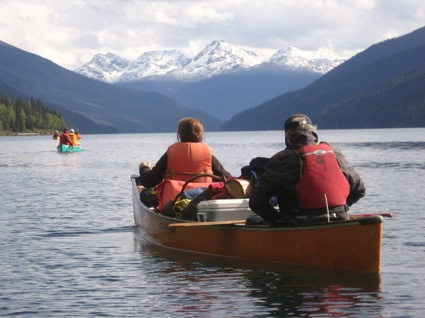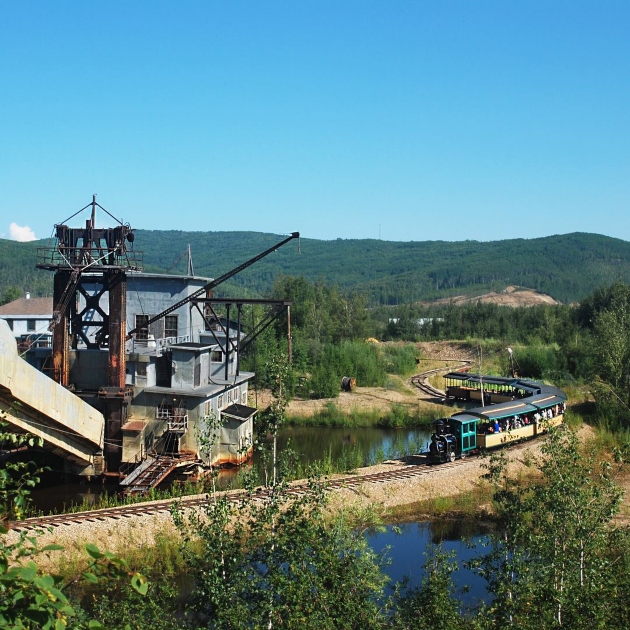Paddle to paradise
Bowron Lake Provincial Park has a world-class canoeing circuit that takes wilderness adventurers into pristine backcountry

Outdoor recreation is right off your doorstep around Barkerville, and Bowron Lake Provincial Park is one place RVers can head to to get their nature fix.
The campground has 25 drive-in sites available on a first-come, first-served basis, and campers can explore the area by walking trail. But the main draw of the park is the canoe circuit—a 116-kilometre loop around the lake and interconnected waterways.
It's all in the details
The full trip takes roughly six to 10 days to complete; there are a number of wilderness campsites along the way where adventurers can spend the night. For the less hardy, a shorter route along the western part of the circuit can be paddled in only two to four days.
It is best to book a time at the registration centre if you are interested in canoeing one of the loops; there are a minimum of four drop-in spaces per day but there is a daily limit on departures to avoid congestion.
Wilderness training and prior canoeing experience is advised, and while there is no cellphone reception, six two-way radios are available along the route for emergencies.
Chris Harris, a local photographer and former canoe tour guide, said there is no other trip like it in the world.
“The biodiversity is phenomenal," he said. "You’re looking at snow-capped peaks, you’re in a rainforest, you’re going to see bears, moose, caribou and wolves; there’s a lot of birds. Each of the seasons brings something different.”
Unique to the mountains
B.C. is known for its wilderness and the creatures living within the unique habitats that exist across the province.
The inland rainforest is home to the mountain caribou—a once-thriving ungulate species now reduced to a population of roughly 2,000. Mountain caribou differ from their northern cousins in that they are typically found in old-growth forests in the B.C. Interior, as well as parts of northern Idaho and Montana in the U.S.
If you catch a glimpse of this critically endangered animal, you are probably in the subalpine part of the forest and far off the beaten path. But habitat destruction is one of the leading factors contributing to the decline of mountain caribou, and they are often on the move, according to John Bergenske, executive director of the environmental group Wildsight.
“Overall, caribou populations have continued to fall in a lot of the areas," he said, "simply because the impacts are still there and the recovery program is going to take some time in order to have an effect.”
The caribou recovery program is an initiative under the provincial government—in conjunction with groups like Wildsight and other conservation organizations—to implement a strategy to reduce adverse impacts on caribou and foster population growth.






